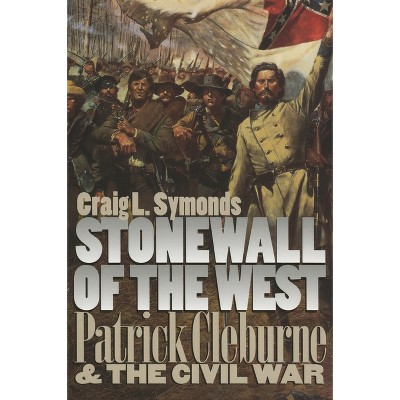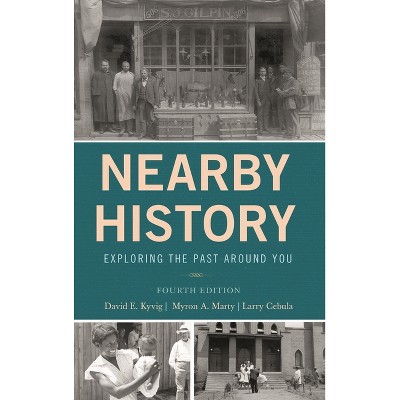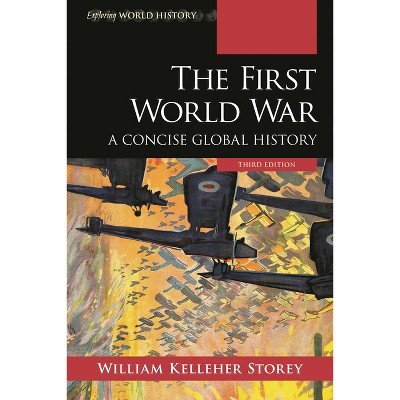Sponsored

Smuggling - (Exploring World History) by Alan L Karras (Paperback)
$37.99Save $4.01 (10% off)
In Stock
Eligible for registries and wish lists
Sponsored
About this item
Highlights
- Exploring the history of smuggling around the world, Alan L. Karras traces all aspects of this pervasive and enduring crime.
- About the Author: Alan L. Karras is associate director of the International and Area Studies Academic Program at the University of California, Berkeley.
- 232 Pages
- History, World
- Series Name: Exploring World History
Description
About the Book
Exploring the history of smuggling around the world, Alan L. Karras traces all aspects of this pervasive and enduring crime. Through a compelling set of cases drawn from a rich array of historical and contemporary sources, Karras shows how smuggling of every conceivable good h...Book Synopsis
Exploring the history of smuggling around the world, Alan L. Karras traces all aspects of this pervasive and enduring crime. Through a compelling set of cases drawn from a rich array of historical and contemporary sources, Karras shows how smuggling of every conceivable good has flourished in every place, at every time. The author also sets smugglers--the ultimate free traders--in the context of the global political economy, where they are tightly woven into an uneasy relationship among governments, taxation, and corruption. Bringing smugglers and smuggling to life, this book provides a fascinating exploration for all readers interested in crime and corruption throughout modern history.Review Quotes
A brief but ambitious and engaging book on the role of smuggling in the modern world. . . . Well versed in the literature, Karras clearly conveys the historical, economic, political, social, and ethical issues involved in a study of smuggling. . . . Without a doubt, his book lays the groundwork for such an important enterprise and it invites classroom discussion of issues of evidence, methodology, and interpretation.
A welcome addition to the literature on smuggling. . . . [Karras] develops important arguments about the nature and causes of smuggling.
Comparative analysis is one of the sharpest tools in the global historian's tool belt, and Karras wields it well. . . . He has given much thought to the ways disparate peoples were comparable, and why. He even manages to find legitimate similarities between smugglers' opposition to legal enforcement mechanisms across space and time. Such comparative analysis helps us get at quintessential and continuous characteristics associated with smuggling. Those interested in social, political, legal, and economic histories will find this book stimulating. . . . Smuggling demonstrates the potential in global history in general, and transnational comparative studies in particular.
In this original and fascinating book, Alan Karras argues convincingly that smugglers were not the bandits of popular imagination but deserve a prominent place in world historical narratives. Karras's fresh treatment of the subject combines analytical insights and rich historical case studies. The approach showcases Karras's expertise in migration, trade, and social networks of the Atlantic world.
Karras clearly knows the sources on Atlantic history like the back of his hand; the British archives . . . are gloriously represented. . . . Karras' case studies . . . are rich . . ., providing 'local color' as well as explaining some of the modalities of contrabanding and the importance of smuggling in larger political-economy frameworks. . . . Recommended to anyone who wishes to learn about smuggling and its many global contexts.
Karras convincingly, and wryly, argues that this wink and nod dynamic has been essential to the survival of the state, siphoning off the sort of public rage over unfair trade that stokes revolutions. Karras also addresses the far more heinous trafficking of people and illegal drugs and refutes the entire endeavor by reminding us that taxes pay for necessary government services.
Karras discusses the intimate connection between smuggling and the corruption of local officials, which, while strictly illegal, sometimes eased the life of local residents.
Karras selects specific cases that illustrate 'a larger pattern that is observable across both time and space' (viii) and reinforce his arguments. They demonstrate the amount of culling through primary resources he's done to assemble this evidence. Also of noteworthy mention is how he shows the lack of correlation between implementing laws against smuggling and how these are interpreted. . . . The book provides an important examination of the global similarities of smuggling and the parallels between modern-day smugglers and those of the past.
The author uses vivid examples from his extensive archival research. . . . While the book centers upon the heyday of political economy debates of the 18th century, Karras keeps modern readers amused with contemporary examples, establishing the relationship between civil society and commerce. Recommended.
This book is part of a broader Exploring World History series edited by John McNeill and the late Jerry Bentley that seeks to provide supplemental texts to internationalize the undergraduate classroom through either thematic world history syntheses or books that adopt a transnational approach to understanding a particular region of the world. Smuggling does a bit of both. Karras focuses specifically on smuggling in the Caribbean and China in the eighteenth and nineteenth centuries but does so by placing these regional treatments of smuggling into a global perspective. He does so through five concise chapters and a conclusion.
This study is empirically rich.
This superb book approaches its topic from a new perspective, exploring the cultural meaning and political impact of smuggling in many parts of the world. Through richly textured archival sources and fascinating visual materials, Alan Karras makes clear that men and women from all social levels participated in and benefited from smuggling. His analysis transforms smuggling from a peripheral economic activity to a central means through which individuals and communities shaped the development of the modern state. Essential for readers seeking a more nuanced view of the real global economy.
About the Author
Alan L. Karras is associate director of the International and Area Studies Academic Program at the University of California, Berkeley.Dimensions (Overall): 8.9 Inches (H) x 5.9 Inches (W) x .9 Inches (D)
Weight: .75 Pounds
Suggested Age: 22 Years and Up
Number of Pages: 232
Genre: History
Sub-Genre: World
Series Title: Exploring World History
Publisher: Rowman & Littlefield Publishers
Format: Paperback
Author: Alan L Karras
Language: English
Street Date: December 16, 2011
TCIN: 1004175643
UPC: 9780742553163
Item Number (DPCI): 247-28-5678
Origin: Made in the USA or Imported
If the item details aren’t accurate or complete, we want to know about it.
Shipping details
Estimated ship dimensions: 0.9 inches length x 5.9 inches width x 8.9 inches height
Estimated ship weight: 0.75 pounds
We regret that this item cannot be shipped to PO Boxes.
This item cannot be shipped to the following locations: American Samoa (see also separate entry under AS), Guam (see also separate entry under GU), Northern Mariana Islands, Puerto Rico (see also separate entry under PR), United States Minor Outlying Islands, Virgin Islands, U.S., APO/FPO
Return details
This item can be returned to any Target store or Target.com.
This item must be returned within 90 days of the date it was purchased in store, shipped, delivered by a Shipt shopper, or made ready for pickup.
See the return policy for complete information.
Frequently bought together
Trending Non-Fiction

$19.31
was $20.98 New lower price
4 out of 5 stars with 65 ratings

$18.28
was $19.58 New lower price
4.7 out of 5 stars with 17 ratings

$4.59
MSRP $7.99
Buy 2, get 1 free select books
4.8 out of 5 stars with 123 ratings

$6.20
MSRP $10.95
Buy 2, get 1 free select books
4.8 out of 5 stars with 33 ratings

$7.09
MSRP $9.99
Buy 2, get 1 free select books
4.9 out of 5 stars with 46 ratings












